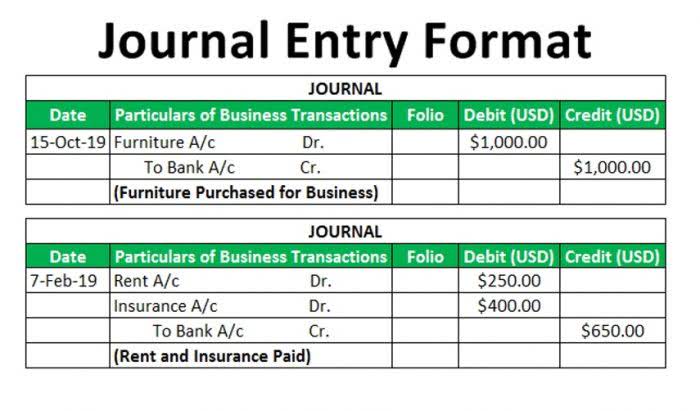
Their responsibilities include maintaining accurate records, budgeting, ensuring compliance, and providing valuable financial insights to management. By possessing the necessary skills and qualifications, property management bookkeepers contribute to the success and growth of the company. Their work is essential for financial visibility, compliance, and cost efficiency, making them a valuable asset to any property management business. Property management bookkeeping is crucial because it helps property managers track income, expenses, and financial trends. With proper bookkeeping, you can handle everything from rent payments to maintenance costs, ensuring the property remains profitable. Additionally, it provides transparency to property owners and helps comply with legal and tax obligations.
The Responsibilities of a Property Management Bookkeeper
Show recruiters examples where you saved the day, such as spotting discrepancies in financial reports or solving tenant deposit disputes. You’ve got a long list of things you’re well-versed in, be it accounting principles or property management regulations. To top it all off, you’re juggling all kinds of software, such as Yardi or Rent Manager. Our property management bookkeeper resume templates and tips for writing cover letters have been proven to work.
Outsource Real Estate Services with ShoreAgents – Download the Guide and Ignite Your Success Today!

Accurate budgeting for capital improvements, such as HVAC systems or roofing, helps property managers plan for the future. Bookkeepers track these expenditures to ensure compliance with financial agreements or reserve requirements. A thorough approach ensures accuracy, saves time when filing taxes, and helps monitor the performance of your rental property. Set up columns for categories such as rent received, repairs, utilities, property management, and insurance. Downloadable templates, like the one from Zillow Rental Manager, can help get you started. Our Corporate Bookkeeping Sevice provides Management Companies with accurate financial records alongside property data in Appfolio.
- Regular reconciliation is highlighted as a best practice in rental property accounting by industry experts.
- Maintaining a separate account for each property helps keep financial records clear and organized.
- Accurate bookkeeping helps in day-to-day operations and provides valuable insights for long-term profitability and compliance with legal requirements.
- They truly understand property management and the need to have everything taken care of expeditiously, not to mention how pleasant he and his staff are to work with .
- By maintaining accurate records and preparing financial reports, they help management make informed decisions and plan for the future.
- Randy personally is amazing in his ability to quickly respond and address any problem or question that comes up.
- Proficiency in financial software tools is crucial for property management bookkeepers to efficiently record and track financial transactions.
Subscribe to our newsletter (2x/week) to learn more about real estateinvesting and property management.
Tracking expenses, including security deposits and property management accounting costs, lead to better expense management throughout the year. Regularly reviewing categorized expenses makes it easier to identify deductible items and streamline your tax preparation process. Proficiency in financial software tools is crucial for property management bookkeepers to efficiently record and track financial transactions. Ongoing management includes recording monthly mortgage payments and tracking both the interest and principal portions. Additionally, tracking closing costs and loan origination fees ensures that all loan-related expenses are accounted for in the property’s financials. When managing AI in Accounting rental properties, it’s important to organize your expenses using clear categories.

Ensuring compliance with financial regulations and guidelines is essential for avoiding fines property management bookkeeper and penalties. Property management bookkeepers play a key role in mitigating financial risks and maintaining the company’s reputation. As a property management bookkeeper, you’ve mastered staying on top of all the accounting, finance, and legal obligations of properties. You effortlessly navigate the dynamic currents of income and expenses, making sure your properties are in tip-top financial health. Keeping detailed financial records, separating accounts, and promptly tracking all transactions are foundational practices for landlord success.

The fact many of the employees are former workers of the property management software company we use as our platform has been the difference maker. The staff is extremely knowledge with not only AppFolio but best accounting practices as well. Property bookkeepers are vital to the real estate industry, offering crucial financial support and guidance to property owners and managers. They perform diverse functions such as ledger account financial record keeping, budgeting, and reporting, ensuring efficient management of property finances. You should maintain thorough records for your rental property to support your tax deductions and document each financial transaction.
Automate Financial Processes
The cost of property management bookkeeping can depend on the scope of services required. At LedgersOnline, we offer a variety of packages to choose from, and we’re happy to work with you to create a package that meets your specific needs. When you work with us, you can rest assured that your finances are in good hands. If you fail to keep receipts or detailed notes on costs like repairs, insurance, or advertising, you risk losing potential tax deductions.
How should I use Excel for rental property bookkeeping tasks?
We handle all the unique requirements and day-to-day demands to keep your property management business thriving. We handle all the unique requirements and day- to- day demands to keep your property management business thriving. Bookkeepers play a crucial role in ensuring these reports are complete and accurate. Depreciation is a tax-deductible expense that property managers can use to reduce taxable income. Bookkeepers must accurately calculate depreciation on buildings, appliances, equipment, and improvements over their useful lives.
